
Heard of the zero-waste movement? It’s pretty much what it says on the recyclable tin – a lifestyle where people aim to completely rid of their rubbish output. No plastic, no wrappers, no waste. It might seem unrealistic in today’s modern world, but there are people out there living it. We caught up with a few pioneers of the movement.
Erin Rhoads from The Rogue Ginger
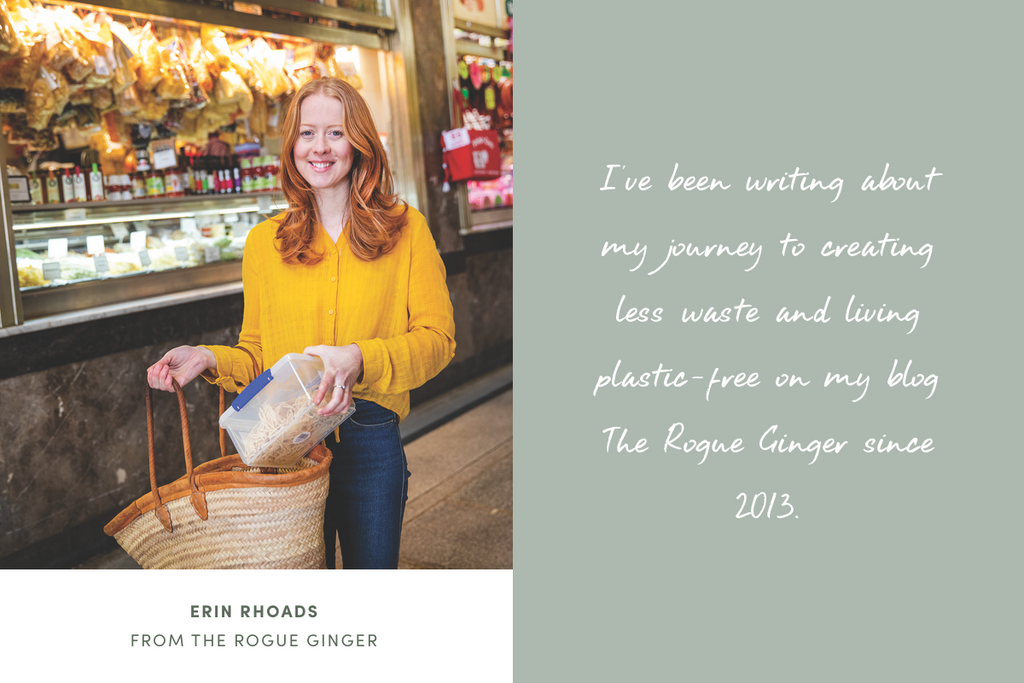
Tell us about yourself and The Rogue Ginger.
I live in Melbourne with my husband and our energetic two-year-old child. We live a zero-waste life and try our best to avoid using plastic where we can. I’ve been writing about my journey to creating less waste and living plastic-free on my blog The Rogue Ginger since 2013. My journey was inspired by the movie The Clean Bin Project. I didn't envision I would become an eco-warrior after watching this movie or that environmental education would become a vocation for me.
I was a consultant on ABC’s War On Waste; I share tips on how to rethink waste with thousands at workshops, talks and forums; I helped organise and assist environmental action groups and co-founded Zero Waste Victoria, Plastic Bag Free Victoria and Cash For Containers Victoria.
You released your first book, Waste Not: Make a big difference by throwing away less, back in 2018, followed up by Waste Not Everyday. Tell us a bit about what to expect in these books and how you ended up writing them.
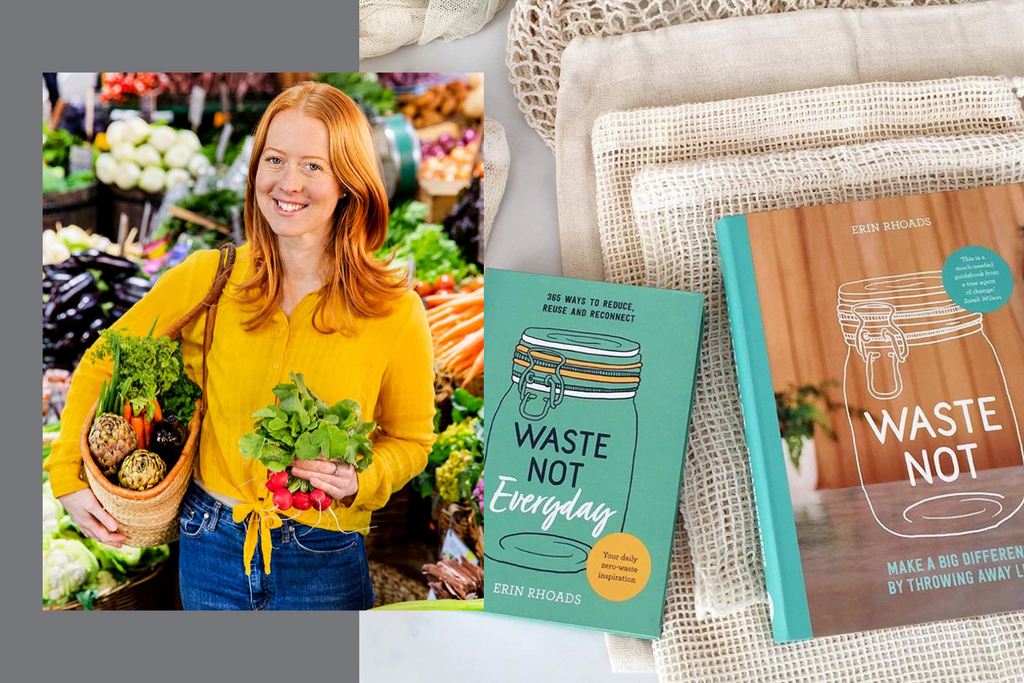
My first book, Waste Not: Make a big difference by throwing away less, is an eco-lifestyle guide book focusing on the ways we can all make changes that will help reduce our impact on the world by reducing how much rubbish we make. The book is divided into three parts; Tools, Tips and Tricks.
Tools explains why we need to reduce how much we consume and waste, and the steps to getting started. Tips help put the tools into action in different areas like the kitchen, garden, bathroom, laundry, kids, clothing, entertaining and even pets. Tricks takes us out of the house looking at how to reduce waste on holidays, at the office and lastly how you can become an everyday eco-activist.
Waste Not Everyday is my first book's little sister. Waste Not Everyday is your step-by-step guide with 365 easy changes that will not only influence what you throw out but also have a genuine impact on the future of our planet. Split into four easy-to-follow parts, Waste Not Everyday features simple tips that will lead to a real shift in thinking and action and show you that a zero-waste lifestyle is actually achievable – for everyone, every budget and every schedule. With tips ranging from actions and inspiration to recipes and resources.
You are part of the zero-waste movement. What does this mean to you?
To me, being part of the zero-waste movement is showing the world there is a different way we can live on this planet. One that doesn't take advantage of resources or people for the sake of more money and ego.
How did you first become part of the movement and why is trying to live a zero-waste life so important?
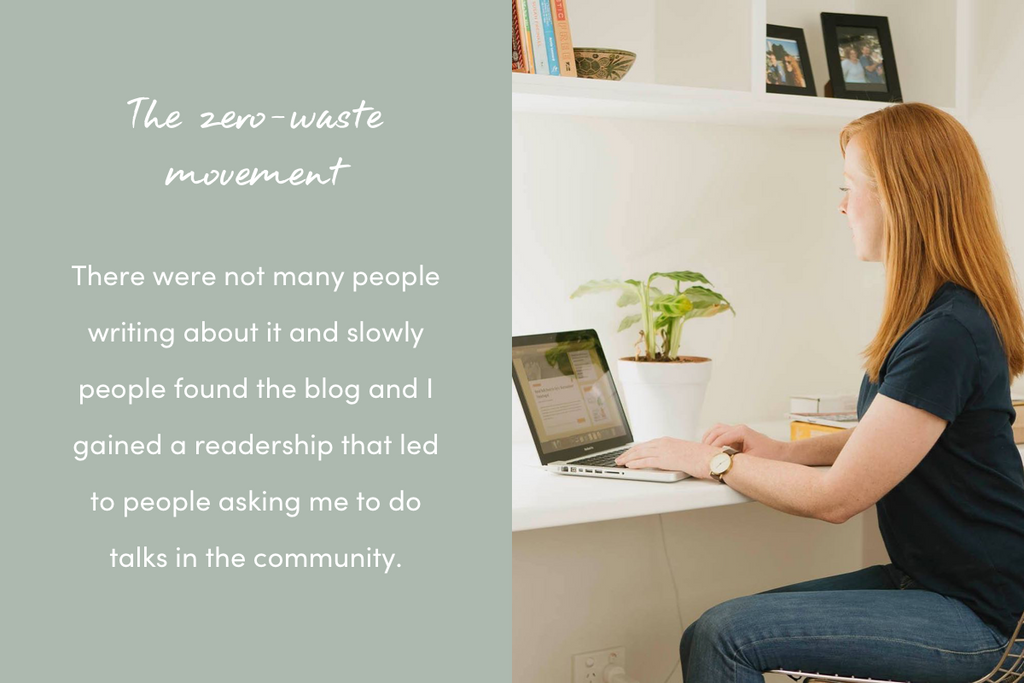
I first became part of this movement during the very early stages before anyone even knew about it. As mentioned before, I was promoted to think about my waste after watching The Clean Bin Project. At the time I had a new blog that was originally for documenting my new life in Melbourne. But it quickly morphed into a diary where I captured my tips and tricks to reducing waste and plastic, how to consume less and become a better steward for the planet.
There were not many people writing about it and slowly people found the blog and I gained a readership that led to people asking me to do talks in the community.
How would you advise others to become involved with the movement? What simple practises can they undertake in their everyday lives?
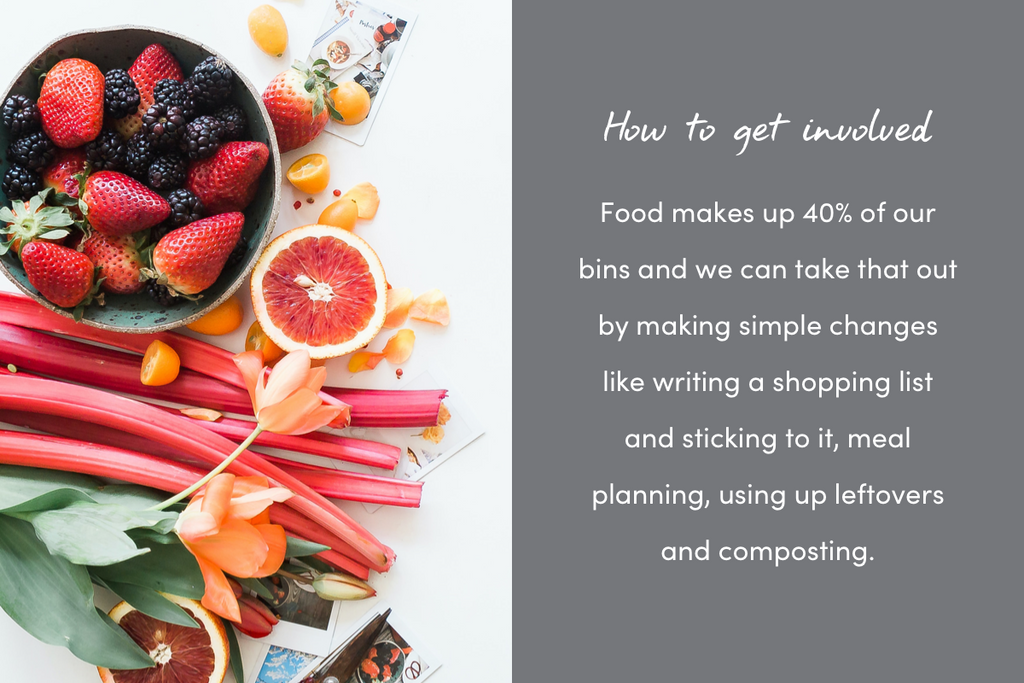
Get involved in the movement by going through your rubbish and noting down what you are throwing away. An easy way to do this is to put a piece of paper near your bin or on the fridge writing down everything you throw in for two weeks. You'll start to see a theme quickly. Food makes up 40% of our bins and we can take that out by making simple changes like writing a shopping list and sticking to it, meal planning, using up leftovers and composting.
You'll save money and will end up taking the bin out less. Another way to reduce waste and your environmental impact is to choose secondhand over new.
Nina Gbor from Eco Styles
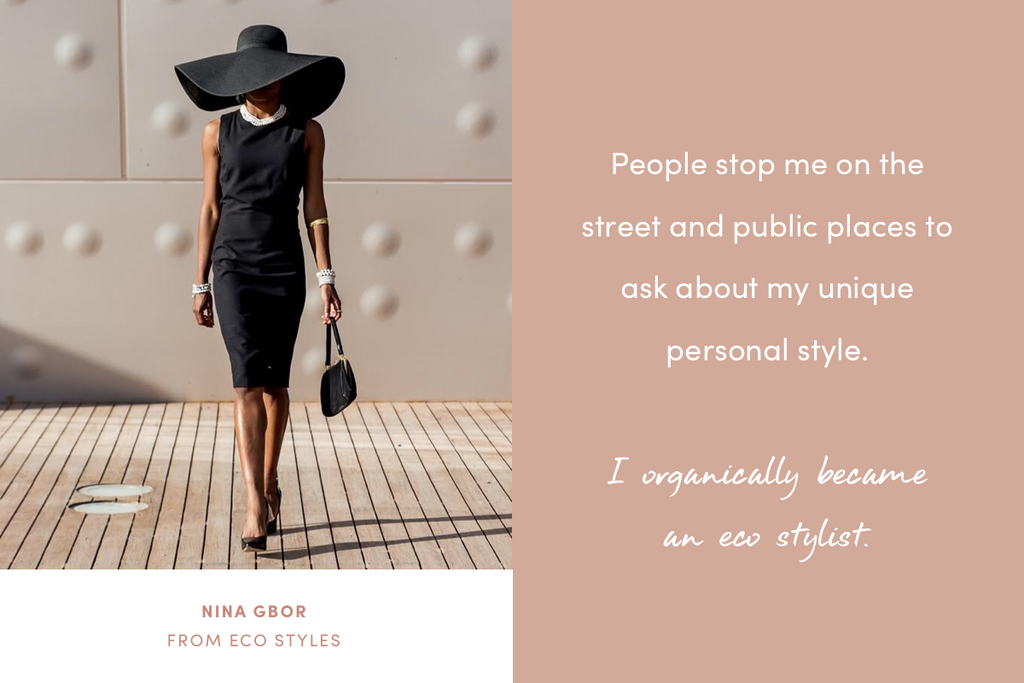
You’re a personal stylist who advocates for sustainability in the fashion industry. Tell us about your journey to get to this point.
At about age five, my soul was shaken by images of extreme poverty and my young mind struggled to process at the time. I saw a charity infomercial on television appealing for donations for what must have been a war or famine-ravaged country. I had never seen humans so thin, helpless and desperate. It sparked this intense desire to do something about it.
My love for style comes from classic films. I grew up watching classic films circa 1940s – 60s with my mum and brothers. The style icons of the silver screen like Audrey Hepburn, Grace Kelly, Vivian Leigh, etc. ignited my love for style as a little girl.
We moved from the US to Africa when I was a teenager, where a happy accident led to an epic life-changing moment that began my eco styling career. I spotted a vintage replica of an upcycled dress from one of the most iconic classic films in human history, Gone With the Wind. Inside the op shop, I had one of the most euphoric moments in my young life by mixing vintage pieces with contemporary ones to create new and unique outfits.
Little did I realise at the time that it would form my future career. Subsequently and even to this day, people stop me on the street and public places to ask about my unique personal style and to ask me to help them style their wardrobes. I organically became an eco stylist.
You have commented on the oversupply of unwanted clothing being shipped to African countries for aid and for profit. Tell us more about these concerns and how your work seeks to overcome the issue.
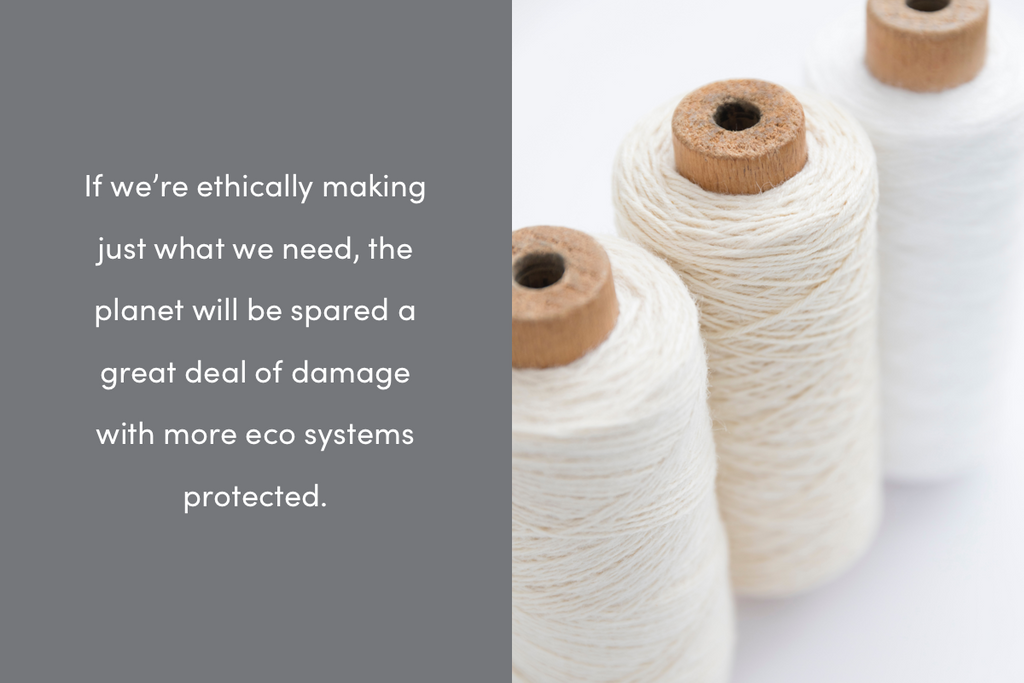
African nations like Kenya, South Sudan, Uganda, Rwanda, Tanzania and Burundi have either banned or are looking to ban secondhand clothing in order to protect nascent local textile industries. These countries are also of the belief that secondhand clothes compromise the dignity of their people. Where aid is needed clothing donations are of course useful but for the most part, largely because of oversupply, this form of aid is no longer needed as much.
The profit part of it has been overruled by pollution. If these and other countries stop taking the oversupply or ‘trash’ of western countries, the latter will have to re-examine the oversupply systems and hopefully moderate. This will be a huge win for the environment with regards to the toll that textile manufacture takes on the planet. For example, it takes 2,700 litres of water to make one t-shirt. If we’re ethically making just what we need, the planet will be spared a great deal of damage with more ecosystems protected.
You are part of the zero-waste movement. What does this mean to you?
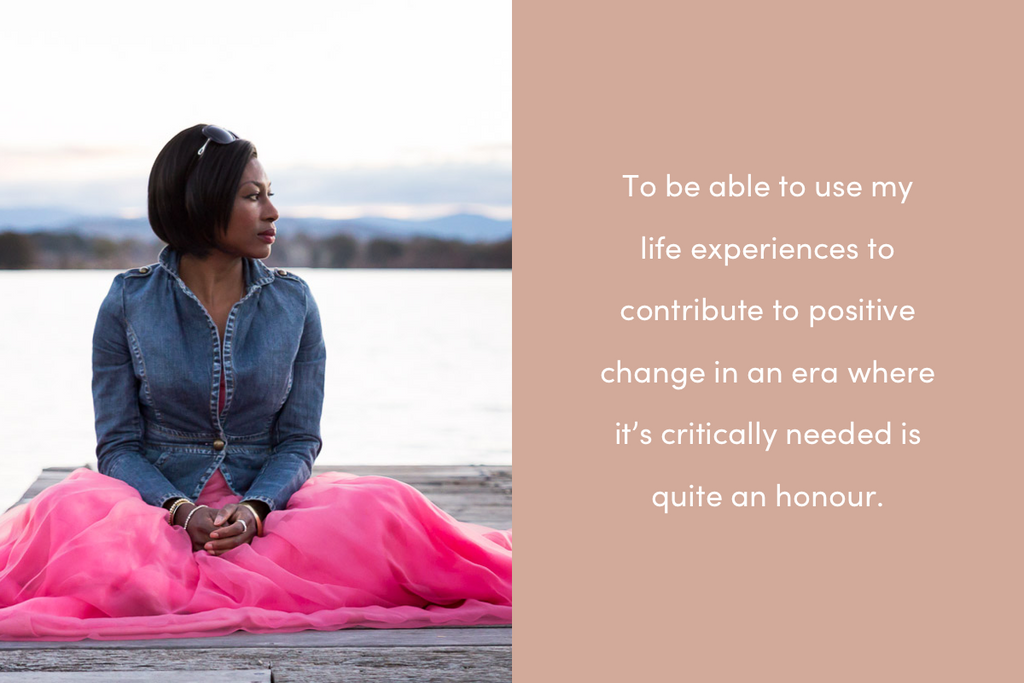
It’s such a privilege to be part of this movement. To be able to use my life experiences to contribute to positive change in an era where it’s critically needed is quite an honour. I very much appreciate the opportunity to be of service and do what I love for a living.
It also comes full circle because when I was eight years old, in my third grade class in the US, we had our first sustainability lesson where we learned about pollution, recycling and climate change. We were also taught that there was a country-continent on the other side of the world called Australia with a massive hole in the ozone layer over it.
Some of the kids in class including myself were freaking out and we were like: “I’m probably not going there!” Who would have thought that one day I’d grow up to become an eco-warrior in Australia of all places?! Having said that, I love it here, so it’s fine.
How did you first become part of the movement and why is trying to live a zero-waste life so important?
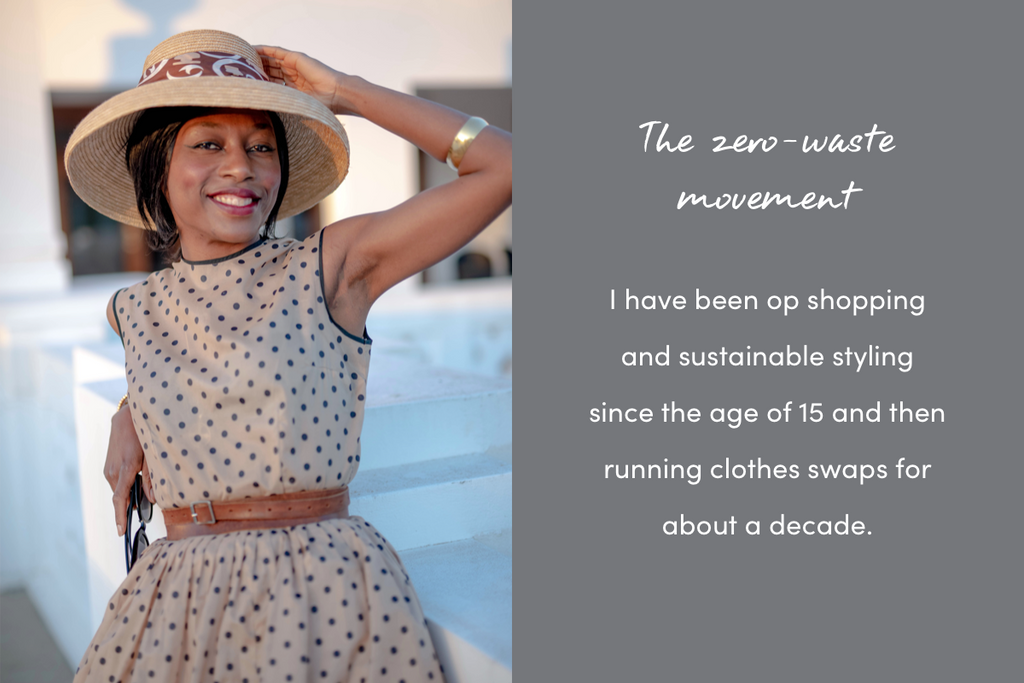
I guess I naturally evolved into the movement simply by being in the right place at the right time my entire life. And by doing the things I loved and had a passion for!
I have been op-shopping and sustainable styling since the age of 15 and then running clothes swaps for about a decade, both in the UK and here in Australia. I think I fully branded with ethical fashion after watching The True Cost docufilm in 2015.
Australian op shops are spending a minimum of $13million a year to sort and discard our clothing and household junk. With a more discerning society, this money could be going to the causes that the charities are helping, and not to sorting and disposal centres.
How would you advise others to become involved with the movement? What simple practises can they undertake in their everyday lives?
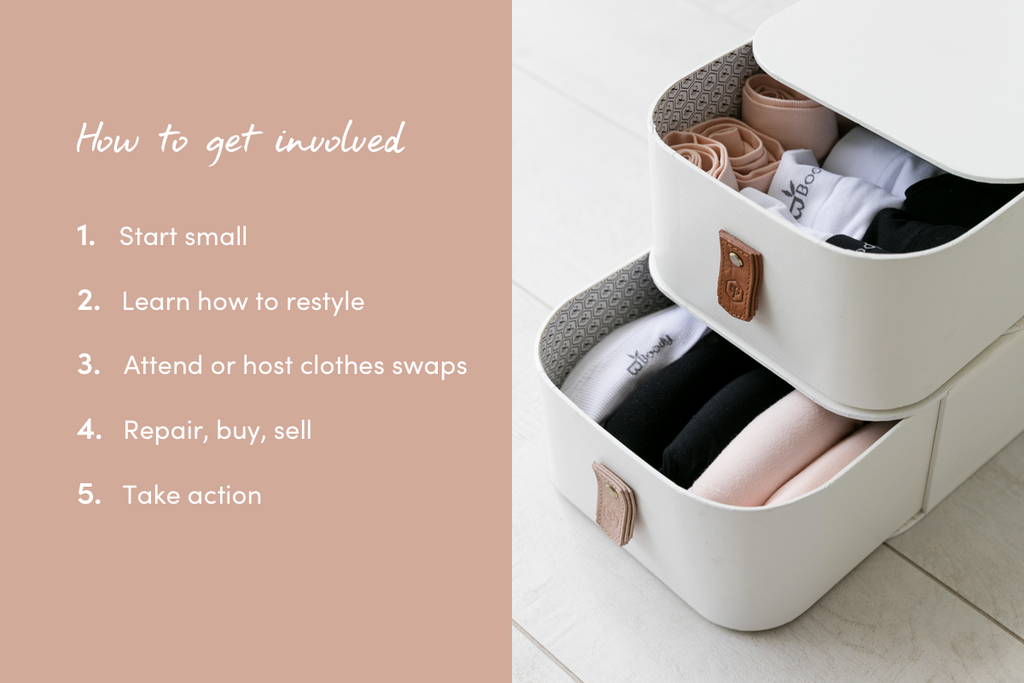
- Start small. Take simple actions like opting for ethically-produced garments made from natural textiles such as organic bamboo. Use the Good On You app.
- Only buy items that you will wear at least 30 times. Learn how to restyle.
- Join the circular economy movement – attend or host clothes swaps.
- Repair, buy, sell and donate preloved clothing and other materials.
- Join revolutionary groups and take action: Fashion Revolution, Oxfam and ActionAid.
Ana Fernanda Covarrubias from Second Runway
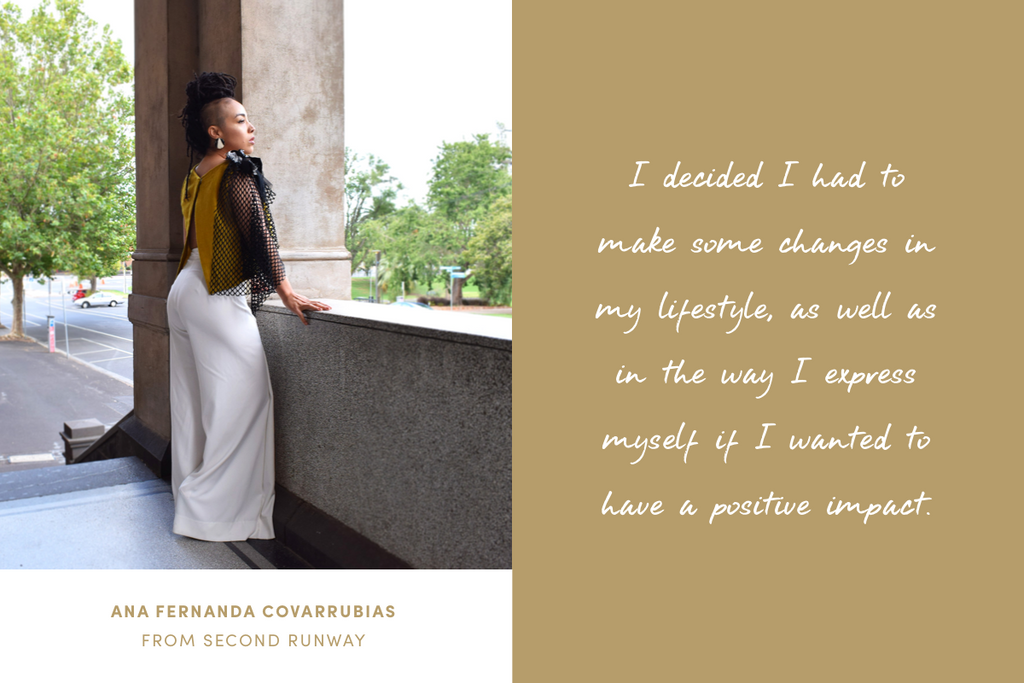
Talk to us about your life as a fashion designer with a passion for slow fashion and upcycling.
Well, I have been designing for over 15 years. But the strong focus in upcycling started about 10 years ago back in Mexico when I launched my own label that was mainly made from deadstock fabric and was locally produced and distributed.
By that time, I was already aware of all the waste that comes from the fashion industry and all the struggles we face as independent designers trying to compete with big brands with massive media and advertisement campaigns. I have been conscious regarding looking after my clothes and all the resources we have since I was a child, nevertheless, my life did a big twist when I travelled to the US and Canada for the first time, and finally when we moved to Australia.
I was shocked at the mass consumption in these developed countries, not only regarding fashion, but food, electronics, and all the commodities we have. I have always known that fashion is my passion, as it’s my way to celebrate who I am and my creativity. Nevertheless, the idea of contributing the least amount possible to climate change became stronger.
This is when I decided I had to make some changes in my lifestyle, as well in the way I express myself if I wanted to have a positive impact. That is how the Fernanda Covarrubias clothing label was born!
How do you combine the world of modern trends with thrifty pieces and sustainability?
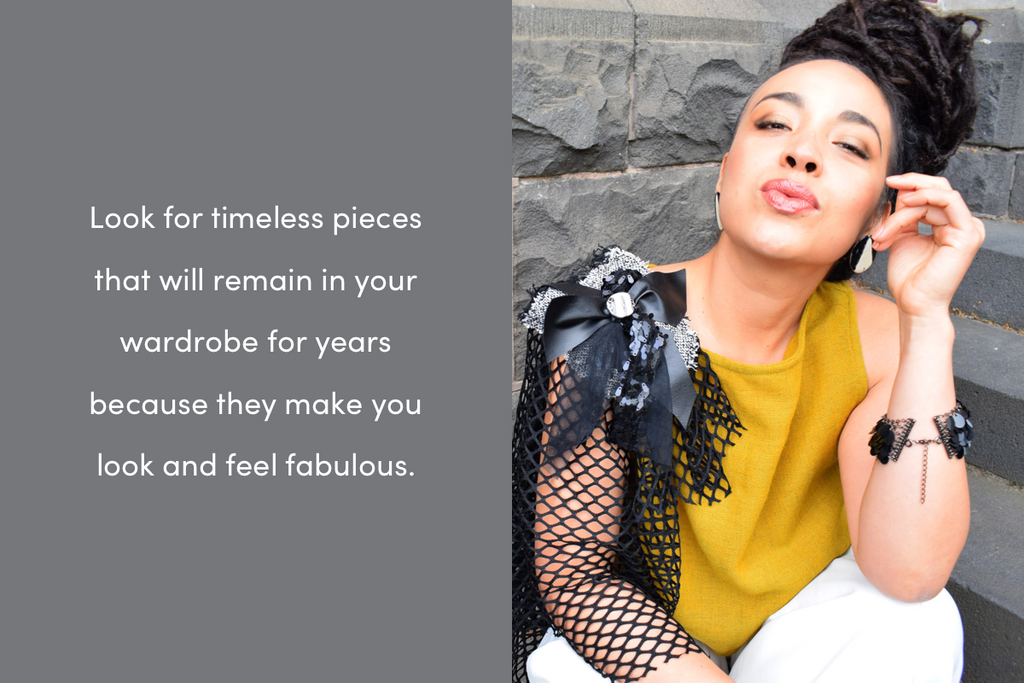
For me, it’s about being creative, but also about knowing about my client's personal style. Once you know what suits you but most important what you really love, you stop looking for trends. Instead, you look for timeless pieces that will remain in your wardrobe for years because they make you look and feel fabulous.
That's why my job as a personal stylist is very important and why my label focuses on a timeless design and colours that you can easily combine with any of the current pieces in your wardrobe.
You are part of the zero-waste movement. What does this mean to you?
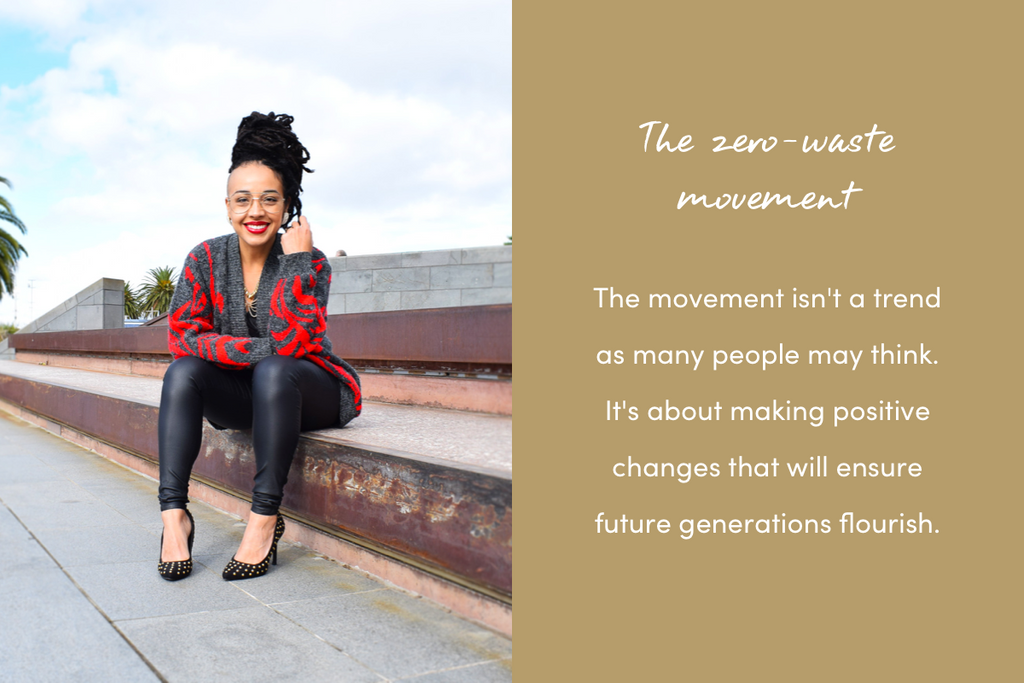
It's a responsibility as it should be for anyone else who is living on this beautiful planet. It’s not about a trend as many people may think, it’s about making positive changes that will ensure future generations flourish. It's about being conscious even though we are not perfect, doing our research, asking questions, making changes in our consumption habits, sharing information and helping others to understand why we all have to be united and change what is wrong if we want to thrive.
How did you first become part of the movement and why is trying to live a zero-waste life so important?
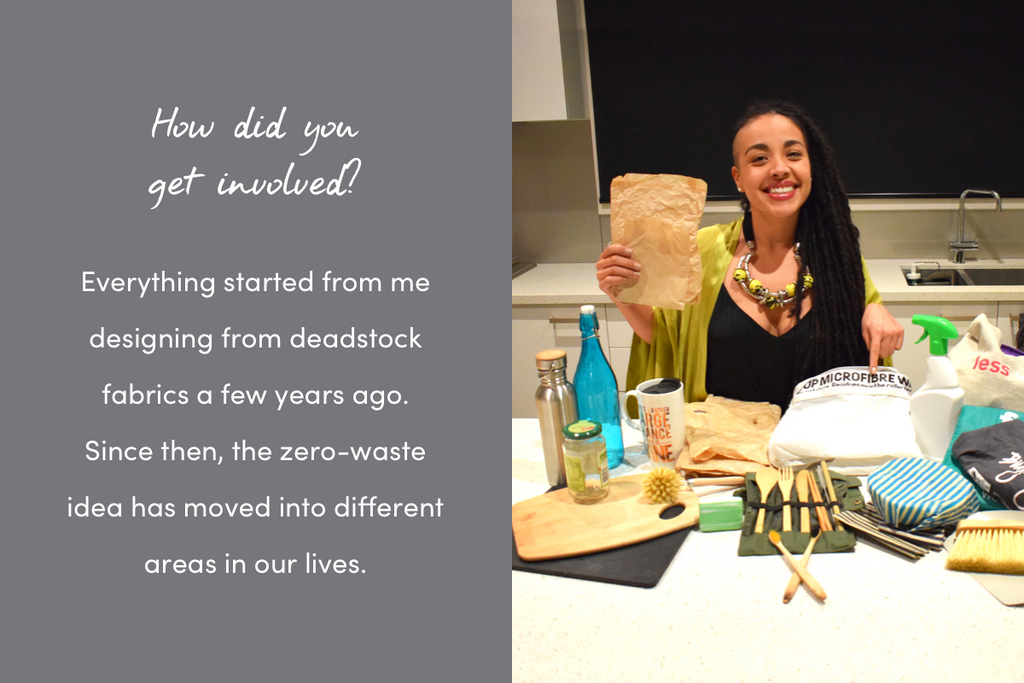
Everything started from me designing from deadstock fabrics a few years ago. It was actually Noe, my partner, who started doing some research on how our diet is affecting our planet by massive deforestation and emissions, then together we decided we had to change our eating habits to reduce our footprint.
Since then, the zero-waste idea has moved into different areas in our lives. We still have many things we want to change – we are not perfect at all – but, we’re learning how to make better decisions every day. And I think that’s important if we want to continue living on this planet and if we want to see future generations thrive.
How would you advise others to become involved with the movement? What simple practices can they undertake in their everyday lives?
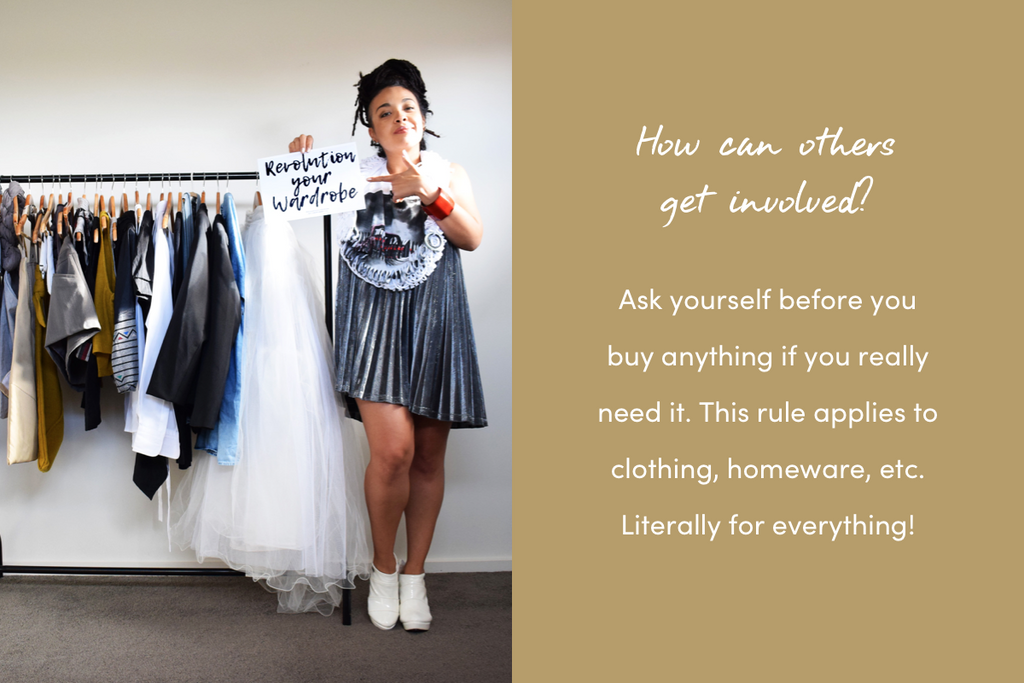
The simplest thing I would say is to wear what you already have and swap your clothes instead of buying. If you’re going to buy something, buy preloved or from designers that produce their clothes from recycled materials and are locally made.
Ask yourself before you buy anything if you really need it. This rule applies to clothing, homeware, etc. Literally for everything! Avoid single-use plastic as much as possible, nowadays there’s no need to use plastic bags in the supermarket and when buying pretty much any of our fruits, vegetables, grains and many other things you can bulk-buy or make for yourself at home.
Always keep in mind that as a consumer, you have way more power than you think to create a positive change.
You may also like

Interviews
An Interview with Tracy Bevan From the McGrath Foundation
Everyone needs a friend like Tracy Bevan. Her official title is McGrath Foundation Ambassador and Director. However her favourite title is Jane McGrath’s best friend. As a community partner with the McGrath Foundation, we had the honour of getting to know her. What is your role at the McGrath Foundation? Tracy Bevan, McGrath Foundation Ambassador & Director. My favourite title is Jane McGrath’s best friend. I helped set up the McGrath Foundation in 2005. As a Director and member of the staff of the McGrath Foundation, I spend most of my time engaging and connecting with the community to raise awareness about the vital role the McGrath Foundation plays in funding McGrath Breast Care Nurses in the community. Tell us a bit about the McGrath Foundation and why it was founded? The McGrath Foundation was co-founded by Jane and Glenn McGrath. Jane’s public experience with breast cancer and the impact of her own breast care nurse set her commitment and the mission for the Foundation: to ensure that every family experiencing breast cancer would have access to a McGrath Breast Care Nurse no matter where they lived – for free. The McGrath Foundation now funds 171 McGrath Breast Care Nurses in communities right across Australia, who have supported over 100,000 families since 2005. What is the role of McGrath Breast Care Nurses? A McGrath Breast Care Nurse is a specialised, registered nurse who acts as a patient advocate, for free. McGrath Breast Care Nurses help individuals and their families affected by breast cancer by providing invaluable physical, psychological and emotional support, from the time of diagnosis and throughout treatment. How can Australians support McGrath Breast Care Nurses? Breast cancer is the most commonly diagnosed cancer in Australia, so our McGrath Breast Care Nurses are needed more than ever. It costs around $140,000 to fund a McGrath Breast Care Nurse for a year including training and development. We need another 79 more McGrath Breast Care Nurses to ensure that no one misses out on care. There are many ways for Australians to support, whether it’s becoming a regular giver, becoming a corporate partner, hosting a pink fundraiser or volunteering at the Pink Test. For more ways on how you can support, visit mcgrathfoundation.com.au. What's your one message you want us to pass on women and men? 55 people will be diagnosed with breast cancer in Australia every day this year. It is important that we all take control of our own breast health and get to know what is normal! If you notice any changes don’t wait, book an appointment with your GPLearn more about the Mcgrath Foundation here. To learn more about how to check your breasts and signs to look out for, follow here.

Interviews
An Open Letter on Mother’s Day
A letter to the women who gave me life and the daughters I birthed into this world. All having an impact and shaping me into the woman I am right now; the mother, the daughter and the granddaughter. My daughters Millie bobby & Lakey Boh, words can't describe the way I feel about you both and the unconditional love that fills my heart knowing you are mine. One of my biggest dreams growing up was to be a mum; to fall in love, have a family and live a happy, healthy, well balanced life. I feel so blessed that my dream is now a reality. Falling pregnant with you both brought me so much joy and excitement.To experience life dancing inside my womb was magic and birthing you was one of the most amazing moments of my life. I thank my lucky stars you girls chose me to be your mum. I promise to be there for you and help guide you through life, but allow you to find your own path. I will teach you and encourage you both to live life to its fullest, dream big, stand strong for your beliefs, show kindness and love. Love life, love hard and love yourself. As girls who will grow into women, you may come across challenges, you may have your heart broken, you may question yourself, you may find yourself lost. Just know that I am here and you are capable of anything. My girls, I want you to know that You are beautiful You are smart You are worthy You are kind You are loved You are like no other You are you And that's truly all you need to be. My world lies with you. Forever your biggest cheerleader. I love you with every part of me. Love your mummy My mum,Thank you from the bottom of my heart for everything you've done and continue to do for me. Only now as a mum myself I truely understand. All the sleepless nights, the cooking to ensure we ate well, the cleaning and never ending laundry, personal taxi driver, unconditional love and the worrying that comes with the role. I feel so blessed to have you and our family. You worked so hard to give myself and my brother so much growing up and continue to give as I have my own family. I appreciate you, your giving nature and willingness to help when needed. From minding my girls, picking up groceries, cooking for us or giving a helping hand around the house. Now a Nonna to my girls, I thank you for your guidance. Millie adores you and enjoys her days with you. Nonna being one of her first words it was evident you had a big impression on her early on. Millie and Lakey are so lucky to have you and I'm so happy I get to watch your relationship with them. You areMy inspiration. My mentor.My friend . I love you To my grandma and Ma to my daughters,We have always just clicked; our love for arts and crafts, our love for a good chat, our love for outdoors and the ocean and our love for family. I've always felt special being your first grandchild and Pa's princess. I have so many good memories growing up at your house, outside playing with Ben (dog) or swimming in the pool. It was my second home and I loved it. You inspire me in many ways, You yourself, a mum of 6, it blows my mind. What a super woman you are. And now a grandma to 15 and a Ma to 2, such a big achievement. You should be so proud. You are a woman of routine, rain hail or shine. In the early hours of the morning you swim in the rock pool with your community of friends and fellow locals. I love this so much and enjoy telling others what a routine to have. What a way to feel alive within the ocean. Pure bliss. I'm so proud of you this last year after the passing of your loving husband, my pa. You are so loved by everyone around you and know I'm always here for you. I love you deeply Mother Nature,It seemed fit to include you in this letter as I have so much to thank you for. I am so blessed to have grown up and currently still live in a beautiful area called the Sutherland Shire. It is such an amazing area to live, grow up and watch my girls grow up in. After becoming a mother for the very first time, I was introduced to a natural way of living. Choosing plants over chemicals, choosing to become aware of ingredients and do research into the products my family use. Choosing safer natural alternatives where possible. Choosing health, wellness and happiness. Choosing to share my journey and build my community. Choosing to make a difference. The last 2.5yrs I have empowered myself and given my daughters a better start to life knowing I'm reducing their toxic exposure. I am connecting with like minded people and small businesses. It has been an eye opener and I am forever grateful. LoveLara Lara wears our Shaper Crop Bra and Classic Bikini. Shop now Follow Lara at @theessentialcoPhotos by @tashwhittyphotography

Interviews
An interview with Marlee Silva, Tiddas 4 Tiddas Founder
Marlee Silva, also known as the ultimate multi-tasker is the force behind Tiddas 4 Tiddas, a writer, a podcast host, and a published author. Marlee launched the Instagram platform Tiddas 4 Tiddas ('tidda' is an Aboriginal word for sister) in November of 2018 with her sister, Keely.























